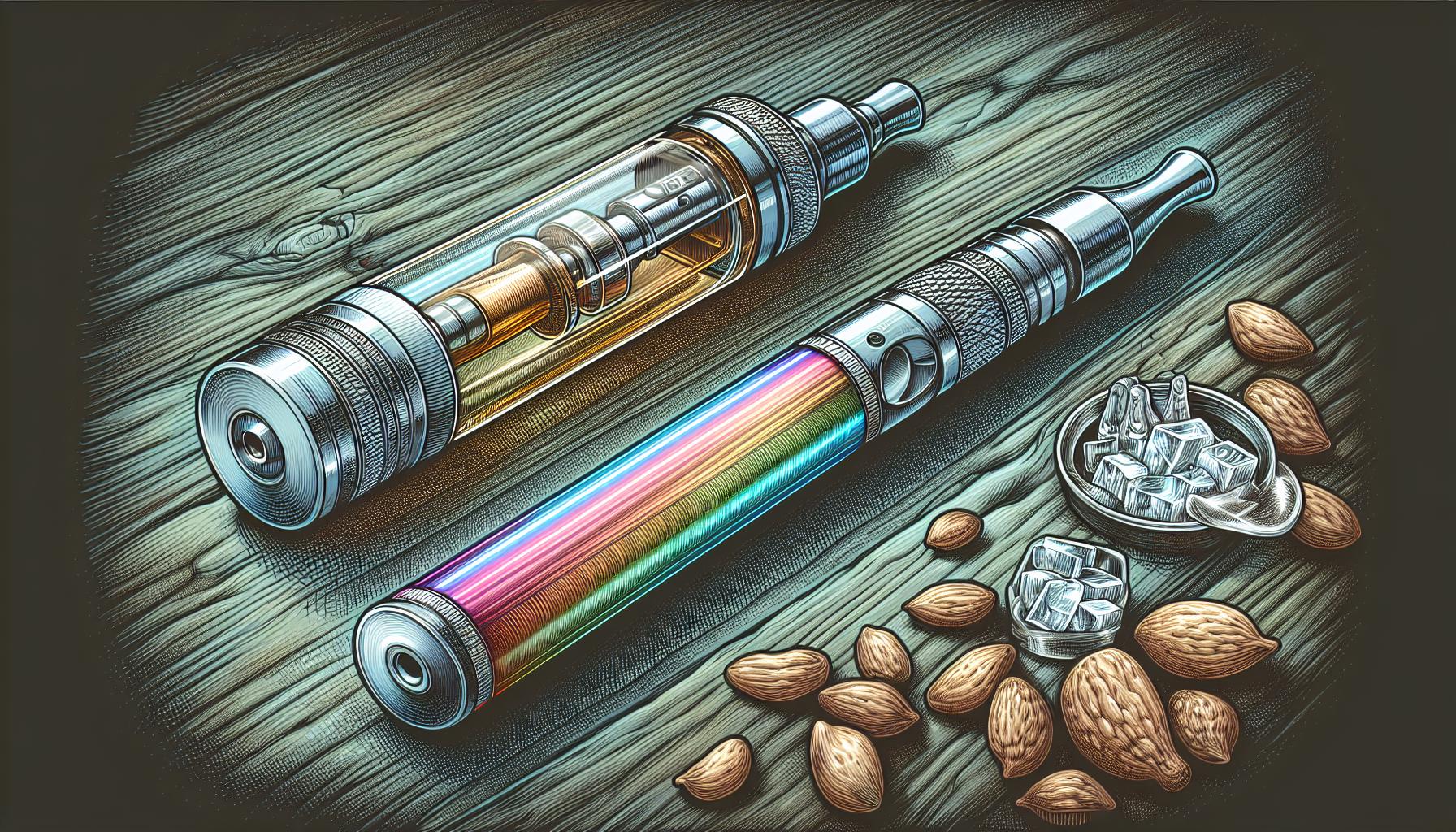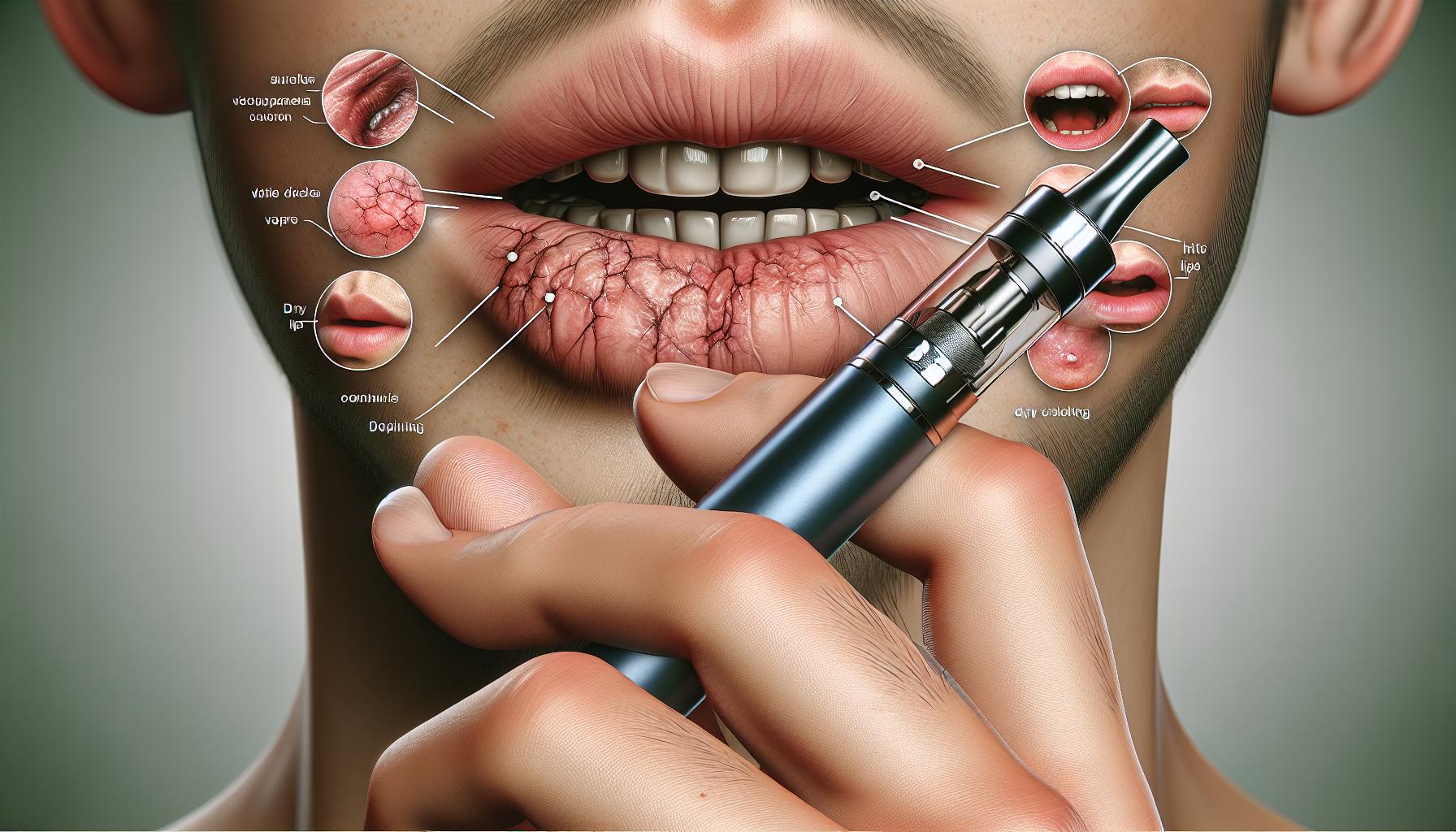Canker sores can be a real pain—literally. If you’ve ever dealt with these small, irritating mouth ulcers, you know how frustrating they can be. Lately, I’ve noticed more people wondering if vaping might be a culprit behind their sudden appearance. With vaping becoming increasingly popular, it’s no surprise that its potential side effects are raising questions.
I started digging into this because, like many, I’ve been curious about how vaping impacts oral health. Could the chemicals in vape juice or the act of vaping itself trigger canker sores? While there’s still much to uncover, there are some interesting connections worth exploring. If you’ve ever wondered whether your vaping habit might be linked to those pesky sores, you’re not alone—and it’s time to get some answers.
What Are Canker Sores?
Canker sores, or aphthous ulcers, are small, shallow lesions that form inside the mouth. They aren’t contagious but can cause pain and discomfort during everyday activities like eating, drinking, or speaking.
Common Causes Of Canker Sores
Several factors contribute to the development of canker sores. Injuries to the mouth, such as biting the inner cheek or using poorly-fitted dental devices, often trigger these sores. Stress and hormonal changes also influence their occurrence. Certain foods, especially acidic or spicy options like citrus fruits and tomatoes, can irritate sensitive tissue, leading to sores.
Deficiencies in key nutrients like iron, vitamin B12, or folate frequently associate with their appearance. Medical conditions, including celiac disease and inflammatory bowel disease, sometimes play a role. Some individuals may also have a genetic predisposition, making canker sores more likely in families with a history of recurrent ulcers.
Symptoms And Impact Of Canker Sores
Common symptoms include round or oval ulcers with red edges and a yellowish or white center. People often report a burning or tingling sensation before the sore appears. Mild cases heal within 7-14 days, but severe sores can last longer, causing significant discomfort.
Larger sores interfere with daily activities, reducing the ability to eat or speak comfortably. Chronic occurrences impact the quality of life, particularly when accompanied by complications like secondary infections or difficulty maintaining oral hygiene.
Understanding Vaping And Its Effects

As vaping gains traction worldwide, it’s crucial to grasp its mechanisms and implications for health. Exploring its components and consequences can highlight its potential role in triggering canker sores.
What Is Vaping?
Vaping involves inhaling an aerosol produced by electronic devices, often referred to as e-cigarettes or vape pens. These devices heat a liquid—commonly called vape juice or e-liquid—into a vapor for inhalation. Developed as an alternative to smoking, vaping attracts users with customizable flavors and lower perceived risks compared to traditional tobacco products.
Common Ingredients In Vaping Products
E-liquids usually contain a mix of propylene glycol (PG), vegetable glycerin (VG), nicotine, and flavoring agents. PG enhances flavor intensity but can cause throat irritation, while VG thickens the vapor. Nicotine levels vary; some products are nicotine-free, while others contain significant concentrations. Flavoring agents, often synthetic or derived from food-grade sources, introduce unique tastes but may carry risks when heated and inhaled.
Known Side Effects Of Vaping
Vaping can lead to dry mouth, throat irritation, coughing, and increased thirst due to its dehydrating properties. Users may experience dizziness or nausea, particularly with higher nicotine levels. Research suggests oral health issues, including gum irritation and potential increases in bacterial growth. Prolonged exposure to certain chemicals in e-liquids may aggravate sensitive tissues, potentially linking it to canker sore development.
Can Vaping Cause Canker Sores?

Vaping has been associated with various oral health concerns, including potential links to canker sores. Understanding these connections requires examining contributing factors and relevant studies.
Potential Links Between Vaping And Mouth Ulcers
The act of vaping can expose the mouth to irritants like nicotine, propylene glycol, and flavoring agents. Nicotine may reduce blood flow, potentially impairing healing in oral tissues and aggravating conditions like canker sores. Propylene glycol, a common ingredient, can cause dryness and dehydration, creating an environment prone to irritation and ulcer formation. Flavoring agents, particularly those with acidic or spicy profiles, might also disrupt oral mucosa and trigger or worsen ulcers.
Heat generated during vaping can further irritate delicate tissues inside the mouth. Prolonged exposure to vapor may damage cells on the mucosal surface, leading to inflammation or increased sensitivity, which are known precursors of canker sores.
Research And Studies On Vaping And Oral Health
Limited research directly links vaping to canker sores, but studies highlight adverse effects on oral health. A 2022 study published in the Journal of Dental Research reported that vaping users experienced higher levels of inflammation and oxidative stress in oral tissues compared to non-users. These factors contribute to weakened immune responses in the mouth, raising the risk for issues like ulcers.
A separate study in PLOS ONE observed elevated bacterial colonization in the mouths of individuals who vape. This microbial imbalance can irritate tissues and, under certain conditions, lead to mouth ulcers. While specific investigations into vaping and canker sores remain scarce, documented impacts on oral health suggest potential connections that require further exploration.
Tips For Managing Canker Sores

Managing canker sores effectively involves both prevention and treatment strategies. By addressing potential triggers and utilizing proven remedies, I can reduce their occurrence and alleviate discomfort.
Preventative Measures For Vapers
Minimizing the risk of canker sores starts with adjusting vaping habits and mitigating its oral health effects. Switching to vape juices with lower nicotine content may reduce irritation, as nicotine can impair tissue healing. Staying hydrated helps counteract the dryness caused by propylene glycol, maintaining a balanced oral environment. Limiting the use of flavored e-liquids, especially those with artificial sweeteners or acidic profiles, can prevent further tissue aggravation.
Maintaining good oral hygiene is also crucial. Brushing gently with a soft-bristled toothbrush and avoiding overly abrasive toothpastes protects oral tissues. Regular dental check-ups allow me to monitor gum and tissue health, catching potential issues early. If underlying habits, like biting the cheek, exacerbate canker sores, using mindfulness techniques may assist in breaking them.
Effective Treatments And Remedies
When canker sores occur, over-the-counter gels or ointments containing active ingredients like benzocaine or hydrogen peroxide can reduce pain and promote healing. I can rinse my mouth with a saltwater solution (1 teaspoon of salt dissolved in 8 ounces of warm water) to cleanse and soothe sores naturally. Medical-grade mouthwashes, particularly those formulated to lower inflammation, may provide additional relief.
For pain from severe sores, consulting a healthcare professional might result in prescription options like corticosteroid rinses or systemic medications. Avoiding foods that irritate sores, such as citrus fruits or spicy dishes, helps prevent further discomfort. Including more vitamins like B12, zinc, and folate in my diet addresses deficiencies that might delay healing or increase the risk of recurrence.
Small lifestyle adjustments, coupled with targeted care, help minimize the impact of canker sores on daily life.
Final Thoughts On Vaping And Canker Sores

Vaping’s potential impact on canker sores highlights the importance of understanding its effects on oral health. The presence of irritants like nicotine, propylene glycol, and flavoring agents in e-liquids creates conditions that may lead to mouth irritation, dryness, and inflammation, triggering canker sores in some individuals. While direct evidence linking vaping to these ulcers is limited, existing research on vaping’s broader oral health effects suggests plausible connections.
Addressing vaping-related canker sores involves proactive care and modifications. Choosing less irritating vape liquids, staying hydrated, and maintaining excellent oral hygiene can reduce potential risks. Additionally, recognizing early signs of irritation or sores can prevent further complications. For anyone experiencing persistent or severe symptoms, medical guidance ensures appropriate intervention. By aligning lifestyle habits with health-conscious practices, it’s possible to minimize oral discomfort while maintaining overall wellness.
Conclusion
Exploring the potential link between vaping and canker sores raises important questions about oral health. While direct evidence remains limited, the connections between vaping-related irritants and oral tissue sensitivity are worth considering. Being mindful of vaping habits, staying hydrated, and maintaining good oral hygiene can go a long way in reducing discomfort and preventing possible complications.
By staying informed and proactive, it’s possible to enjoy a healthier approach to both vaping and overall oral care.
Frequently Asked Questions
1. What are canker sores?
Canker sores, or aphthous ulcers, are small, painful ulcers that appear inside the mouth. They are non-contagious and typically have a red border with a yellow or white center. These sores can make activities like eating, drinking, and speaking uncomfortable.
2. Can vaping cause canker sores?
While no direct evidence confirms that vaping causes canker sores, chemicals in vape juice, like nicotine and propylene glycol, can irritate oral tissues. This irritation may contribute to the development of canker sores.
3. How does vaping affect oral health?
Vaping can cause oral dryness, irritation, inflammation, and increased bacterial growth. These factors may weaken oral tissues and increase the likelihood of mouth ulcers, including canker sores.
4. What are common symptoms of canker sores?
Common symptoms include round or oval ulcers with a red border, a burning or tingling sensation before they appear, and discomfort during activities like eating or speaking.
5. How can I prevent canker sores if I vape?
To reduce risks, consider using vape liquids with lower nicotine, staying hydrated, avoiding highly flavored e-liquids, maintaining good oral hygiene, and visiting your dentist regularly for check-ups.
6. How long do canker sores take to heal?
Mild canker sores typically heal within 7-14 days, but severe cases may take longer and could require medical treatment for relief.
7. What should I do if canker sores persist?
If canker sores persist or worsen, seek medical advice from a dentist or healthcare professional. Persistent symptoms may indicate underlying health issues requiring attention.
8. Does nicotine in vape juice affect oral health?
Yes, nicotine can reduce blood flow and impair healing in oral tissues, which may increase the risk of irritation and the formation of canker sores.
9. Can dry mouth from vaping lead to canker sores?
Yes, dry mouth caused by vaping creates an environment that can irritate oral tissues, potentially increasing the likelihood of canker sores.
10. Are there lifestyle changes to manage canker sores?
Yes, staying hydrated, avoiding spicy or acidic foods, maintaining regular oral hygiene, and minimizing irritants like nicotine can help manage and prevent canker sores.
